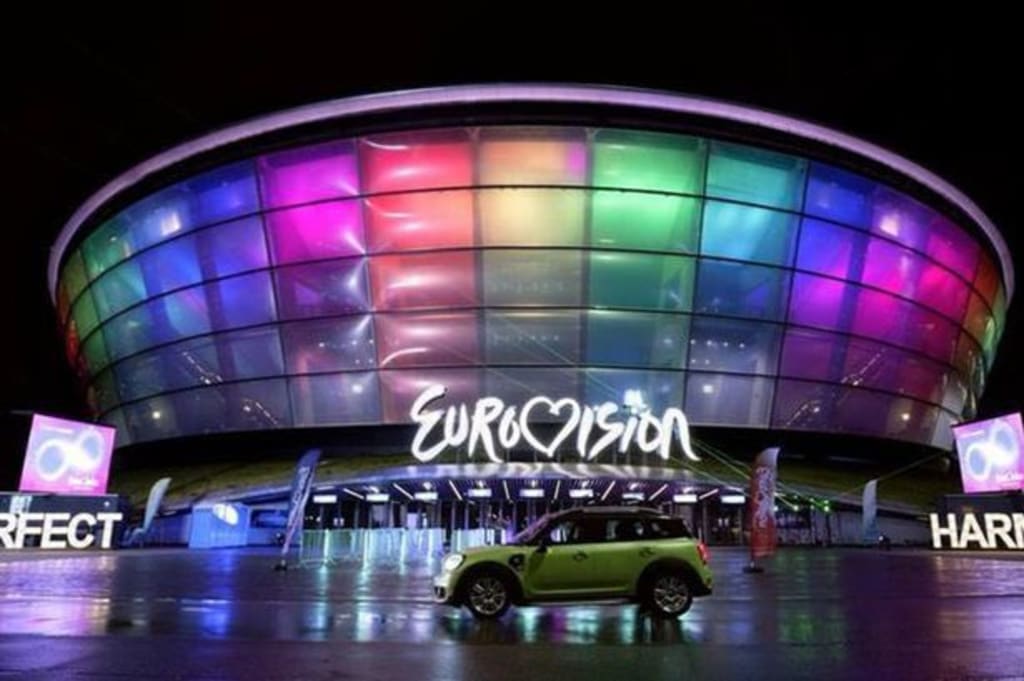
The decision on where to hold next year’s Eurovision Song Contest has been cut down to two cities. These are Glasgow and Liverpool. Ukraine officially won the competition last time round, but due to the ongoing conflict with Russia, it is extremely unsafe to hold the competition there so it was decided that the UK who came in second could host the competition in 2023. There was a wide variety of interest from many cities around the country to host the event. This included expressions of interest from Birmingham, Leeds, Manchester, Newcastle and Sheffield. AS time went on, the judging panel decided the two cities who had the strongest bids and the strongest musical heritage.
Both Glasgow and Liverpool have extremely strong bids as they have a long history of music culture and events that goes through out the years. Liverpool had the Beatles who were extremely popular and is one of the main reasons that the city is famous. Sonia came second in the contest back in 1993 with Better the Devil You Know. The city has also been represented by Jemini, who sadly got nul points in 2003.
Glasgow was a bookies favourite right from the start with its OVO Hydro venue having a capacity of 14,300. The arena would be a fitting setting in some ways after being filmed for the exterior of the venue in Will Ferrell’s 2020 Netflix movie Eurovision Song Contest: The Story of Fire Saga. The city is also famous for having Lulu who won the competition in 1969 with Boom Bang a Bang.
Another Glaswegian Scott Fitzgerald finished as the runner up in 1988 after he was beaten to the top spot by Celine Dion.
The leader of Glasgow City Council said the city has “everything it takes” to host Eurovision.
“The competition has been very strong but Glasgow has an unrivalled track record for successfully hosting major global events,” Susan Aitken said.
There are also a lot of exhibition centres and other buildings near to the actual venue where they are planning to hold the event which would be good to be used as bases for major press organisations and other companies so that they don’t need to travel that far in order to reach the actual studios where the event is being held. This makes it a lot easier when transporting important equipment and paper work which will be needed for when it is time to broadcast.
Liverpool has a rich musical heritage which attracts thousands of visitors each year. For example, they have the Matthew Street Festival which is held every year at the main area where the Beatles were based. People will be able to visit many museums to learn about how the band was formed and how they came to be as famous as they are now. They will be able to see the stories and backgrounds behind many of their most famous songs which will help them become more culturally aware of what the world was like many years ago.
Liverpool Mayor Joanne Anderson said she was “absolutely delighted” the city had made the final two.
“Nowhere throws a party quite like us,” she tweeted. “The people, communities & businesses of our city are ready to put on a show – for Ukraine, the UK & for Europe.”
Phil Harrold, the chairman of the BBC’s host city selection committee, said: “Thanks to all seven cities across the UK who have demonstrated the enthusiasm and passion for Eurovision that exists right across the UK.
“We were incredibly impressed by the quality and creativity of all the city bids in what was a highly competitive field.
“The Eurovision Song Contest is a very complex event and Liverpool and Glasgow have the strongest overall offer; we will continue our discussions with them to determine the eventual host city.”
The event organisers say that the ideal venue for the competition should hold at least ten thousand spectators, be with in easy reach of an international airport and have enough accommodation for at least two thousand delegates, journalists and ticket buyers.